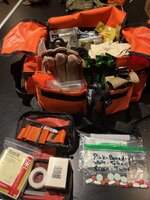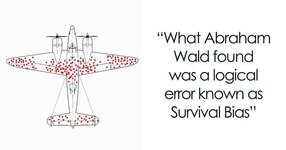Good to know! What do you suggest or are options?
Zyrtec (cetirizine). As an Rx (so this is a statement, not a recommendation) it can be used safely at 4x the normal daily dose (two 20 mg doses) for hives. It as effective as Benadryl at an equivalent dose, but due to side effects it would not be advisable to take 4x the standard dose of Benadryl. Zyrtec is also less likely to cause hypotension. The only argument for Benadryl in the literature for emergency management is that it WAS the only antihistamine available IV, however so is cetirizine now, so that argument no longer stands.
Antihistamines do not treat anaphylaxis, alone they can potentially exacerbate it. There use even as an adjunct to epinephrine is debatable, even though it is pretty standard practice the evidence for it is questionable.
If Benadryl was introduced today, with the current second generation antihistamines on the market, I doubt it would get FDA approval even as an Rx.
Quick podcast on it

foamcast.org
https://www.ncbi.nlm.nih.gov/pmc/articles/PMC6517288/ "As adjuvant therapies H1‐ and H2‐antihistamines and steroids are also often given, although there is little data to support these uses and in the case of first‐generation, potentially sedating H1‐antihistamine preparations, there is potential to cause harm."
Many people have experienced mild allergic reactions to a food, medication, or other allergen, but a severe reaction can be harmful or even fatal. Anaphylaxis must be treated with epinephrine as qu...

www.health.harvard.edu
Given that it is paywalled and copywrite material, I cannot quote it, but UpToDate, specifically states antihistamines should not be given until AFTER epinephrine has been given and that it only treats itching and hives, not the life threatening concerns in anaphylaxis. That is all antihistamines, but the first generation, like Benadryl, have the real potential to cause harm due to the sedating effects.
You will find plenty of providers (MD's, DO's, PA's, NP's) who still use it. That does not make it right, it just means they are operating using old practices, it takes about 20 years for common medical practice to catch up with the evidence unfortunately.
Yeah I’m gonna need clarification as well.
See above





